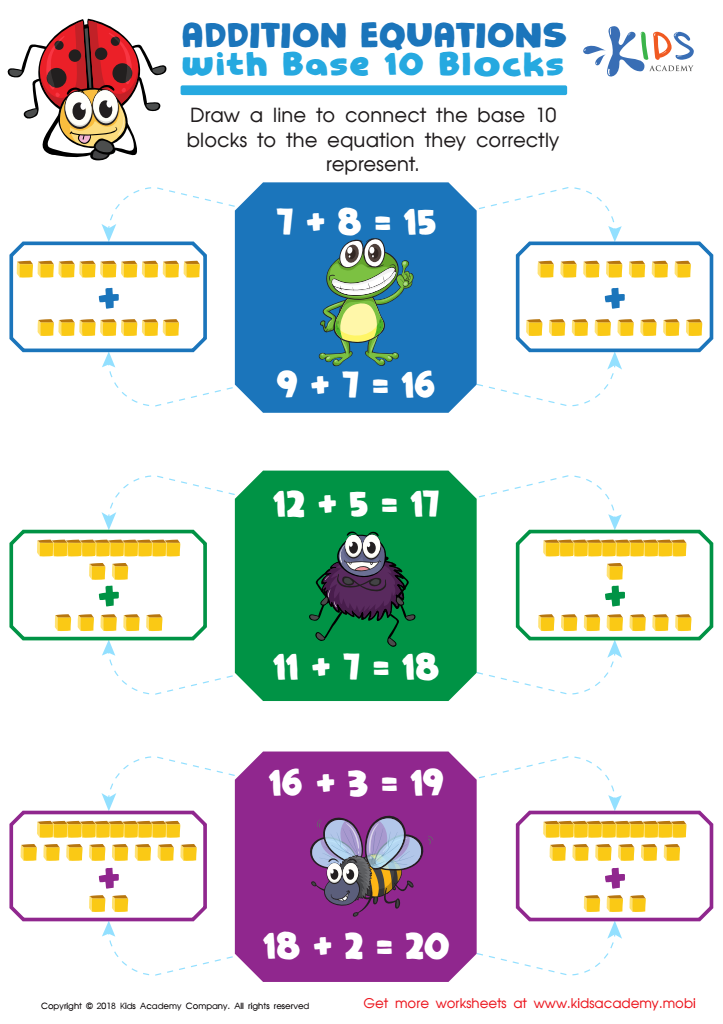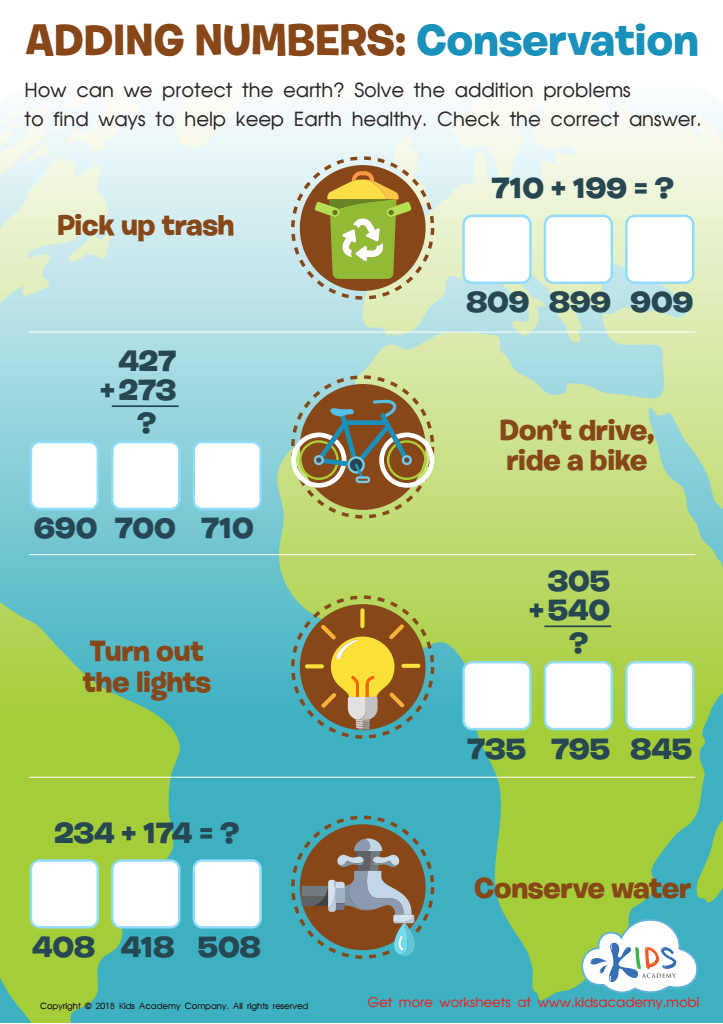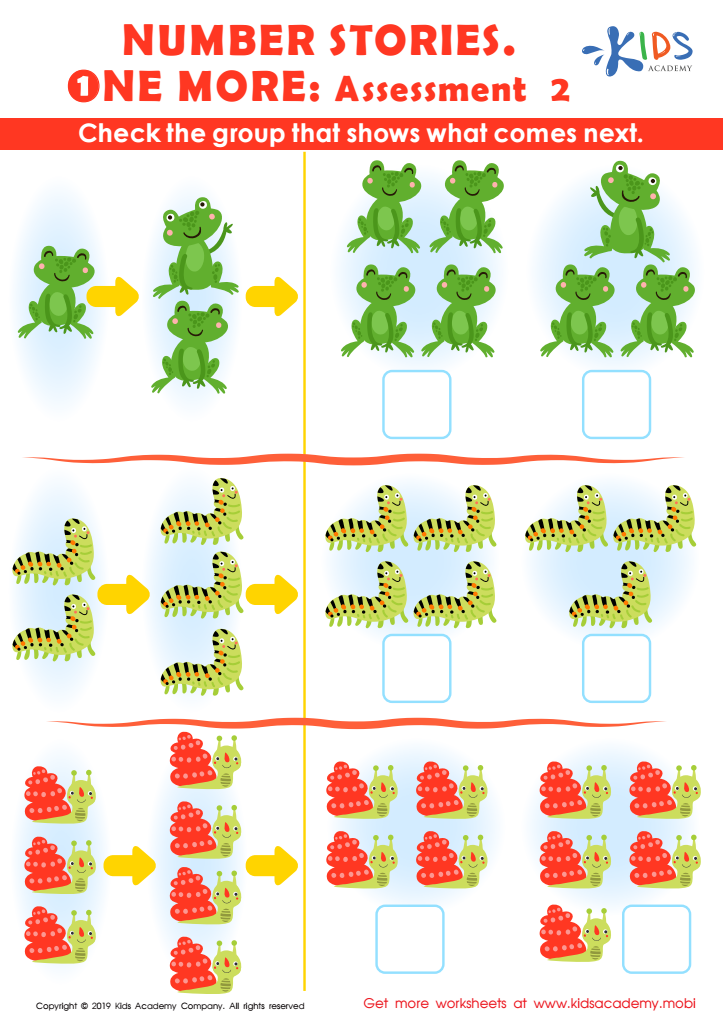Problem-solving practice Normal Math Worksheets for Ages 4-7
3 filtered results
-
From - To
Discover our engaging Normal Math Worksheets designed specifically for children aged 4 to 7, focusing on problem-solving skills. These worksheets promote critical thinking and enhance mathematical understanding through fun, relatable scenarios. Each activity is tailored to foster early numeracy, allowing young learners to practice addition, subtraction, and simple operations in a stress-free environment. With colorful visuals and age-appropriate challenges, our resources aim to create a joyful learning experience that keeps children motivated. Perfect for both classroom and home use, these worksheets are an excellent tool to support your child's math journey, helping them build a strong foundation for future success.


Addition Equations With Base 10 Blocks Worksheet


Adding Numbers: Conservation Worksheet


Number Stories One More – Assessment 2 Worksheet
Parents and teachers should prioritize problem-solving practice in normal math for children ages 4-7 because it lays a foundational understanding of mathematical concepts that transcends mere memorization. At this age, children are naturally curious and engaged in exploration, making it the ideal time to introduce problem-solving activities that stimulate critical thinking and reasoning skills.
Problem-solving helps children develop essential cognitive skills such as analytical thinking, creativity, and perseverance. By engaging in real-life mathematical challenges, children learn to approach problems systematically, break them down into manageable steps, and arrive at logical conclusions. This process nurtures their ability to think independently and fosters a sense of confidence in their skills.
Moreover, problem-solving practice facilitates collaborative learning. When children are encouraged to work together on math challenges, they learn from one another and develop social skills like communication, teamwork, and empathy. This interactive aspect of learning can make math enjoyable and less intimidating.
Ultimately, incorporating problem-solving in early math education not only enhances children’s math literacy but also instills a strong foundation for lifelong learning, preparing them for future academic success. Engaging in these practices supports holistic development, making it crucial for parents and teachers to invest time and resources in fostering problem-solving skills.
 Assign to My Students
Assign to My Students





.jpg)










